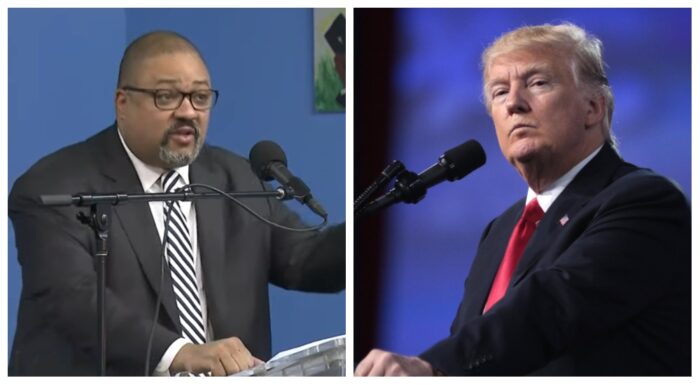ABC News host Jon Karl seemed to acknowledge that Manhattan District Attorney Alvin Bragg’s “hush money” case against President-elect Donald Trump lacked substance and significance during an appearance at a Politics and Prose book event in Washington, D.C. Karl described the charges as “tawdry” and questioned the necessity of pursuing the case at all, though he and most other legacy media journalists and outlets reported on the ‘severity’ of the charges when the case was initially filed.
On Friday, Karl spoke with Tim Heaphy, an author who recently wrote a detailed analysis of the January 6 Capitol protests at a bookstore in Washington, D.C. During their conversation about the criminal cases against Trump, Heaphy mentioned that Bragg’s case is complicated and difficult for the general public to understand. “Ultimately, the only criminal trial that happened related to the past and future president was the one in New York. A pretty complicated case involving payments that his fixer and lawyer made to a porn actress. Falsification of records, in and of itself wasn’t a felony,” he said, adding that Bragg needed to apply highly questionable legal theories in order to charge Trump with felonies. “I mean, you know, it’s a it’s a pretty complicated tawdry set of… And you think, that’s the thing he went on trial for?” Karl then conceded that a “fair observer could look at that New York case and say, why is this even being prosecuted?”
Trump was sentenced this past Friday after being convicted earlier this year on 34 felony counts of “falsifying business records” by a Manhattan jury. Manhattan District Attorney Alvin Bragg, who campaigned on prosecuting the former president, alleged that Trump falsified business records related to payments made to Stormy Daniels, an adult film actress.
Bragg argued that Trump misclassified the payments as “legal fees,” elevating the accusation to falsifying business records—a charge that would typically amount to a single misdemeanor at most. Despite the expiration of the statutes of limitations, Bragg invoked COVID-era extensions to bring 34 felony charges against Trump.
For the offenses to be elevated to felonies, Bragg needed to demonstrate that the payments were made to conceal another crime. However, the supposed “additional crime” was never clearly identified by Bragg. Judge Juan Merchan instructed jurors that they did not need to agree on what the alleged crime was. Despite the contentious nature of the case, a Manhattan jury found Trump guilty after brief deliberations in May. Check out the video featuring Karl’s comments below:



